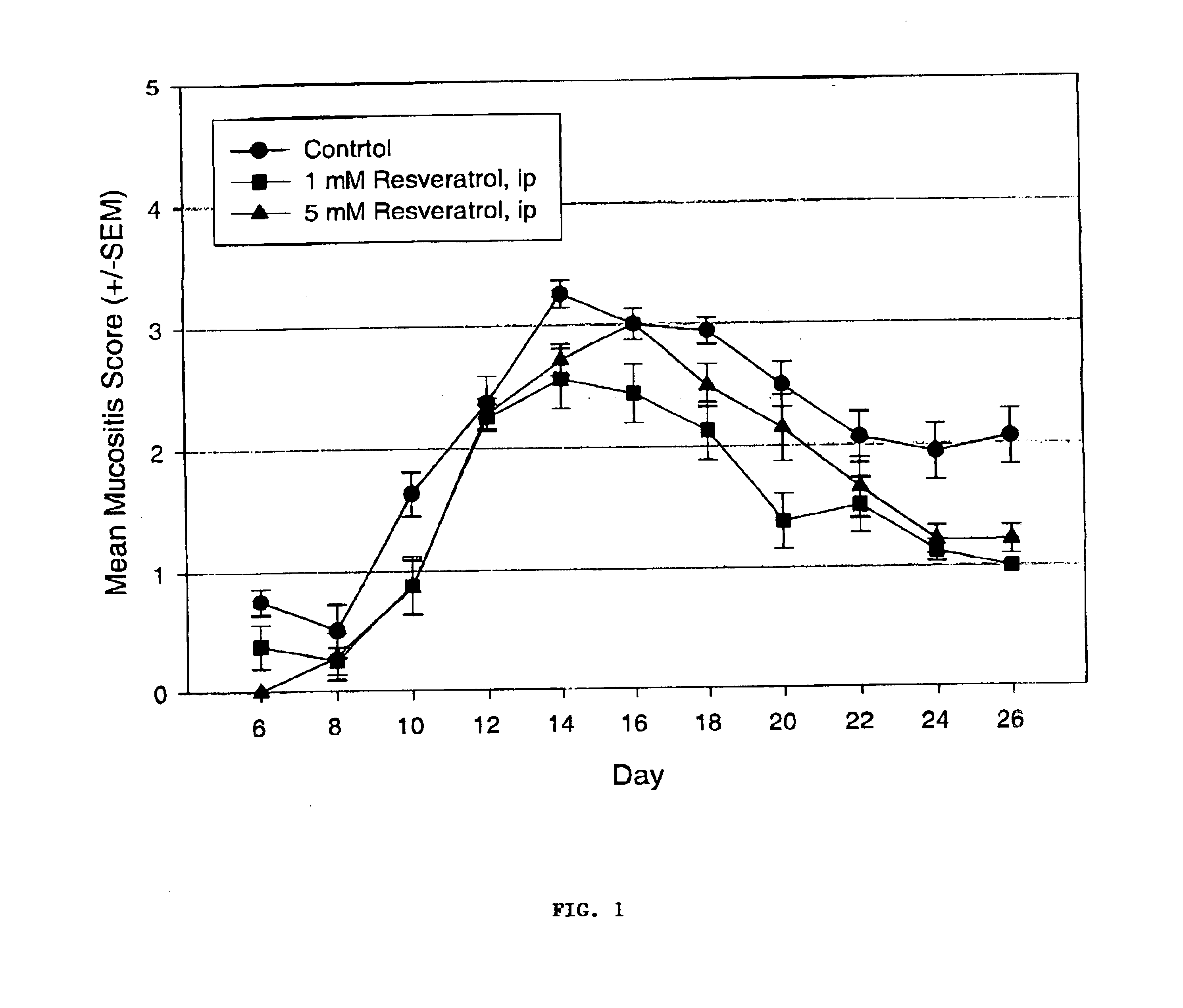Treatment and prevention of mucositis in cancer patients
a cancer patient and mucositis technology, applied in the field of oral ulcerative mucositis treatment and prevention, can solve the problems of ulcerative lesions, pain, dose limitation, etc., and achieve the effects of preventing, healing, stabilizing, or ameliorating effects
- Summary
- Abstract
- Description
- Claims
- Application Information
AI Technical Summary
Benefits of technology
Problems solved by technology
Method used
Image
Examples
example 1
Animal Model of Treatment of Mucositis with Resveratrol.
Hamster models of chemotherapy-induced mucositis and radiation-induced mucositis have been developed. In the latter model, specific doses of acute radiation were targeted to the designated mucosa, with protection of other areas by a customized lead shield. The reproducibility of the model has been validated, with the consistent appearance of ulcerative mucositis between days 15 and 18 following radiation. Using this model, the efficacies of various topical agents have been tested for their abilities to modify the course of radiation-induced mucositis.
Project Rationale and Protocol
Study Parameters. This study analyzed resveratrol in both topical and intraperitoneal dosing at concentrations of 1 mM and 5 mM. The control group was dosed topically with water.
Induction of mucositis by an irradiation regimen. An acute radiation dose of 40 Gy on day 0 was administered in order to produce severe mucositis around day 15. The use of acut...
example 2
Synthesis of Hydroxystilbene Derivatives.
PUM
| Property | Measurement | Unit |
|---|---|---|
| length | aaaaa | aaaaa |
| resistance | aaaaa | aaaaa |
| frequency | aaaaa | aaaaa |
Abstract
Description
Claims
Application Information
 Login to View More
Login to View More - R&D
- Intellectual Property
- Life Sciences
- Materials
- Tech Scout
- Unparalleled Data Quality
- Higher Quality Content
- 60% Fewer Hallucinations
Browse by: Latest US Patents, China's latest patents, Technical Efficacy Thesaurus, Application Domain, Technology Topic, Popular Technical Reports.
© 2025 PatSnap. All rights reserved.Legal|Privacy policy|Modern Slavery Act Transparency Statement|Sitemap|About US| Contact US: help@patsnap.com



